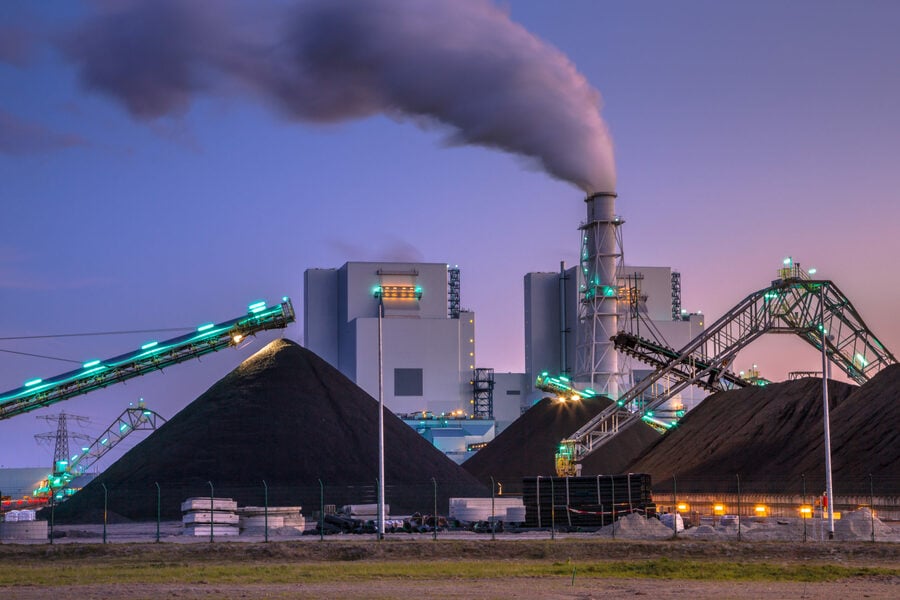

The U.S. Supreme Court’s ruling in West Virginia’s lawsuit against the EPA could have far-reaching economic consequences due to climate risk, sustainable investing advocates say.
The opinion, issued last Thursday, limits the Environmental Protection Agency’s ability to lower greenhouse gas emissions from power plants. With it, private business will have greater control over its environmental responsibilities in the future, and investors now face more pressure to get power companies to act voluntarily on climate change.
The decision “endangers our country’s ability to effectively confront the climate crisis, the greatest economic, environmental and humanitarian threat of our time,” Ceres CEO Mindy Lubber said in a statement from the organization. “It flies in the face of established precedent and imperils the economy, as well as the health and safety of communities across the U.S. and the globe.”
The court ruled 6-3 in West Virginia’s favor, with the three liberal justices dissenting, just as they did in the court’s recent decision to overturn Roe v. Wade and other cases. The decision invalidates stricter regulations the EPA passed under the Clean Air Act during the Obama administration that had effectively been on hold since numerous groups sued the government agency in 2016. The regulations, dubbed the Clear Power Plan, never took effect amid the Supreme Court’s stay on them at the time.
The court’s majority found that the EPA exceeded its regulatory authority and that the scope of new limits it sought would instead require approval from Congress.
Ceres and others rejected that opinion, stating that carbon dioxide falls under the category of pollutants that the EPA has the authority to regulate.
“There is significant U.S. business support for the certainty and economic benefits that regulation provides. In January, 15 leading companies filed an amicus brief urging the U.S. Supreme Court to reject the case,” the Ceres statement read. “The businesses, all of whom have made ambitious carbon reducing commitments, include Apple, Amazon, Cummins, Danone North America, Google, Johnson Controls, Levi Strauss & Co., Meta Platforms, Microsoft, Netflix, PayPal, Salesforce, Siemens, Tesla and Workday.”
The ruling means that businesses would have to do more, voluntarily, to address climate change, said Leslie Samuelrich, president of Green Century Capital Management, in an email.
“With this unfortunate ruling, corporations will have to walk their talk on addressing climate risk and reduce their emissions,” said Samuelrich, who is a member of ESG Clarity’s U.S. Committee. “Every company can play a role in the transition to a cleaner economy and it’s time for each of them to act to protect investor interests and people from the worst effects of climate change.”
According to The Public Interest Network affiliate Environment America, electricity production in the U.S. is the country’s second-leading source of greenhouse gases. A recent report from that group found that the top 100 U.S. power plants by emission level — all of which rely on coal — produce just over 19% of the country’s electricity but account for over 44% of greenhouse gases in the sector.
In a statement, Public Interest Research Group campaigns director Matt Casale said that more attention should now be on “other strategies and venues, including state legislatures and corporate campaigns,” as a lack of EPA enforcement means “the federal government is left with just blind hope that polluters will do what they’re supposed to”.
The high court’s decision conflicts with the recent momentum of shareholder engagement with public companies and could put the country farther behind others in addressing climate change, As You Sow said in its reaction.
“It is difficult to fathom what drives the majority members of the court to tear down the very systems that have made life livable, the sky clear and waters clean,” As You Sow president Danielle Fugere said in the statement. “Asking Congress to become experts on complicated scientific matters and attempt to reasonably regulate them is farcical.”
This story was originally published on ESG Clarity.

Despite a lighter regulatory outlook and staffing disruptions at the SEC, one compliance expert says RIA firms shouldn't expect a "free pass."

FINRA has been focused on firms and their use of social media for several years.

RayJay's latest additions bolster its independent advisor channel's presence across Pennsylvania, Florida, and Washington.

The deal ending more than 30 years of ownership by the Swiss bank includes six investment strategies representing more than $11 billion in AUM.

Divorce, widowhood, and retirement are events when financial advisors may provide stability and guidance.
How intelliflo aims to solve advisors' top tech headaches—without sacrificing the personal touch clients crave
From direct lending to asset-based finance to commercial real estate debt.
